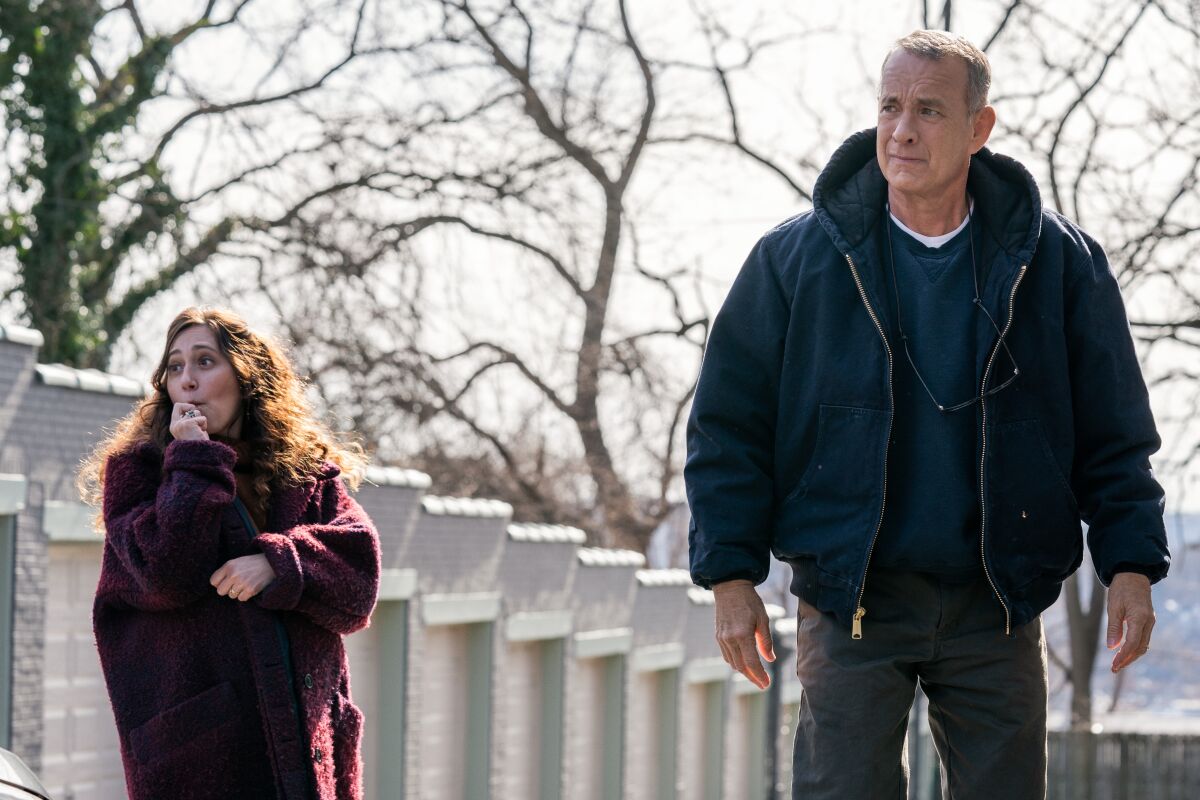‘A Man Called Otto’ features a cranky — but hurting — old man, just like Dad
I saw the 2015 Swedish film adaptation of Fredrik Backman’s incredibly funny, heartbreaking novel “A Man Called Ove” the year it came out — before I had read the book, and long before I had any idea I would write an American film adaptation of the story.
Toward the end of that film, which was beautifully written and directed by Hannes Holm, there is a scene in which Ove, a widower in his 60s, takes his neighbors out for a drive. As they ride together, the normally dour Ove sighs, allows himself a rare smile and says: “This is living.”
Most viewers probably didn’t give this little comment of Ove’s a second thought. For me, though, it marked the culmination of Ove’s search for renewed purpose in his life, and the understated way he expressed himself in that moment reminded me of the taciturn men I knew growing up in the Midwest — most notably my own father.
In Ove, Backman has created a character who at times can be contentious, obstinate and even downright rude — the sort of man whose outrageous reactions to everyday situations become the subject of comic anecdotes that are retold countless times by enemies and friends alike.
Many of the people telling those stories don’t realize, though, that much of Ove’s crankiness is actually a symptom of his private heartache. Widowed, living alone and recently pushed into retirement, Ove is struggling at the outset of Backman’s story to find something worth living for, and his unwillingness to share with others what he is going through serves only to further isolate him from the world.
My father was by no means as curmudgeonly as Ove, but in his later years he had health issues that left him in constant pain and greatly restricted his ability to enjoy life. No matter how he was feeling on any given day, though, if you were to ask him how he was doing, he would always give the same reply: “Doing fine.” Dad had been raised to believe that people shouldn’t complain about the unfairness of life or go on excessively about their feelings or disappointments; a frequent bridge and gin rummy player, he didn’t even like it when people talked too much about hands that had already been played, because doing so wouldn’t change the result.

Mariana Trevino stars as Marisol, who refuses to let Tom Hanks’ crotchety Otto shut her out in “A Man Called Otto.”
(Niko Tavernise/Niko Tavernise)
One can suffer through only so much real pain in silence before it expresses itself in other ways. Dad’s grumpy side usually came out in public settings when he found himself unable to do simple things that he had once taken for granted. Sadly, much of his ire was reserved for hapless waiters who made the mistake of trying to help him get seated in a restaurant — or, God forbid, offered to read him the entrees on the menu. If you saw my dad in those moments and didn’t know him, you’d probably assume he was always that cranky by nature. He wasn’t — not by any means. He just didn’t like others thinking he needed their help.
As I adapted Ove’s story to an American setting, I made a number of changes along the way in order to help settle him into his new home. Ove became Otto. He moved from Sweden to Pittsburgh and started driving a Chevy instead of a Saab. His new neighbors received different names, backgrounds and ethnicities, and the fights that he had with his local housing council were transformed into battles with a large real estate conglomerate.
But at its heart, “A Man Called Otto” is still the story of a grumpy man who has lost his sense of purpose and doesn’t want others thinking he needs their help. Then one day some new neighbors move in across the street and one of them, a determined young woman named Marisol, sees through Otto’s grumpy façade and refuses to let him shut her out because, as she puts it: “You think your life is so hard and everyone is an idiot so you have to do it all on your own, well, guess what? You can’t. No one can. And you should be happy that someone wanted to help you — even if they are an idiot.”
A number of people who have seen the film have asked me whether the isolation we all felt during the COVID pandemic influenced the writing of the script. Virtually no one had heard of COVID when I took on the project, so I can’t take credit for being prescient, but COVID did hit as I was working on the first draft, and I saw along with everyone else how quickly loneliness and isolation can amplify social discord, driving people apart at a time when they need to connect to others the most.
Otto is just going on a drive with friends when he says, “This is living,” but I think he is feeling the way many of us did when the pandemic abated and we began to reconnect with the world. In that moment, Otto has started to find his new purpose just by allowing others back into his life and caring for them — even if they are “idiots.”
For all the latest Entertainment News Click Here
For the latest news and updates, follow us on Google News.
